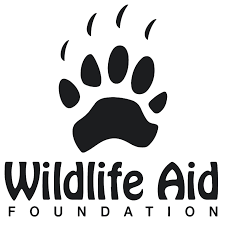
The Wildlife Aid Foundation
Registration number: 1138944
The Wildlife Aid Foundation rescues, rehabilitates, and releases British wildlife, handling over 20,000 incidents annually. Their expert team performs life-saving surgeries and provides nurturing care, crucially safeguarding wildlife populations and maintaining ecological balance.
Key statistics
From the founding year and expanding team to generous donations and growing turnover, these key figures highlight the scale and impact of The Wildlife Aid Foundation’s work over the last year.

Main Causes
Wildlife SOS
Rescue, rehabilitate, and protect wildlife while promoting conservation and community awareness.
Find out moreConserve Wildlife
Rescues, rehabilitates, and releases British wildlife, promoting conservation and ecological balance.
Find out moreAdopt an Animal
Support wildlife conservation by adopting an animal. Help protect and care for vulnerable species!
Find out moreDonate Now
Protecting Wildlife, Preserving Nature – Your Donation Makes a Difference with The Wildlife Aid Foundation
About The Wildlife Aid Foundation
By supporting The Wildlife Aid Foundation, you contribute to the preservation of Britain’s natural heritage. From rescuing injured animals to educating the public on the importance of wildlife conservation, the foundation plays a vital role in fostering harmony between humans and nature. Your involvement ensures that every animal gets a second chance at life and helps protect the delicate ecosystems that sustain us all. Together, we can create a future where wildlife thrives.
Find out moreFrequently asked questions
You can support WAF through various means, including:
– Donations: Financial contributions help fund rescue operations and medical care.
– Adopt an Animal: Symbolically adopt a species to support its care and rehabilitation.
– Volunteering: Assist with animal care, rescues, or administrative tasks.
– Fundraising: Organise events or activities to raise awareness and funds.
WAF is not generally open to the public to ensure minimal stress for the animals in care. However, they occasionally hold open days and events. Check their website for upcoming opportunities.
Yes, WAF is committed to educating the public about wildlife conservation. They offer talks, school visits, and have educational resources available on their website.
To volunteer with WAF:
– Application: Visit their website to find information on current volunteer opportunities and the application process.
– Training: Volunteers may receive training relevant to their roles, such as animal care or rescue operations.
WAF cares for a wide range of British wildlife, including:
– Mammals: Foxes, badgers, hedgehogs, deer, rabbits, and bats.
– Birds: Owls, pigeons, and various other bird species.
– Reptiles and Amphibians: Occasionally, they also assist reptiles and amphibians in need.
Key Appeals
Hedgehog Release Programme
Help rehabilitate and return hedgehogs to their natural habitats safely.
Find out moreWinter Wildlife Appeal
Help protect and care for vulnerable animals during the harsh winter months.
Find out moreHelping Wildlife at Home
Discover simple ways to help wildlife at home! Create habitats, provide food, and support local species.
Find out moreImage Gallery


Keep up to date
Whether you are a donor, charity or organisation, staying informed helps you make impactful choices. Sign up for our newsletter to keep up to date with the charity space.

